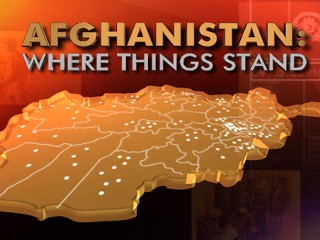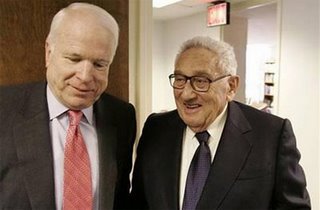Polling in Afghanistan
 A recent ABC–BBC-ARD survey of Afghanistan has both given hopes to those who support NATO’s mission in Afghanistan and created a backlash among doubters.
A recent ABC–BBC-ARD survey of Afghanistan has both given hopes to those who support NATO’s mission in Afghanistan and created a backlash among doubters.
The news in the poll was astoundingly good, with the trends for almost every issue pointing in the right direction and, in some cases, rocketing in that direction. But, how seriously should we take the survey results? Many analysts believe it impossible to do accurate public opinion sampling in authoritarian countries — let alone those in the midst of a brutal civil war.
Huffington Post‘s Ryan Grim interviewed five “people who have worked extensively on the ground in Afghanistan” — only one of whom, it should be noted, has any polling expertise — and they say it’s “impossible” to get accurate results. But ABC polling director Gary Langer provides a cogent and detailed rebuttal.
I outline the arguments at great length in my New Atlanticist essay, “Afghanistan Polling Difficult But Not Impossible.” The closer:
I spoke with Jim Burton, a vice president at Public Opinion Strategies who has fielded surveys and taught polling methodology in Iraq. He notes that, in recent years, many NGOs and other reputable organizations have done polling in very hostile countries with significant success. The key is knowing “what the expectations are” when going in and using “the best methodology possible” under difficult circumstances.
In Afghanistan, for example, the last census is nearly 15 years old so proper weighting of the sample to match national demographics — as is routinely done in surveys of Western countries — is not possible. So researchers have to be realistic about such things and understand that the results are “not going to be perfect.”
Burton notes that Langer is “a stickler on methodology” and “deserves credit” for his efforts over the years in Iraq and Afghanistan. So, while we may not want to assign the same level of precision to the numbers in this Afghanistan survey as we would one conducted in the United States, England, or Germany (the host countries for the news organizations behind the work) we can nonetheless take them quite seriously as the best estimates possible under extremely arduous circumstances.
Which, considering the results of this survey, is encouraging, indeed.






If the most radical fraction of the population has the initiative and effective veto power, I’m not sure it makes a great deal of difference.
A different issue entirely but I agree.